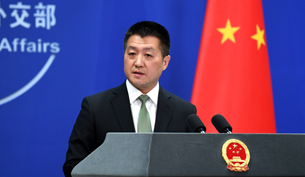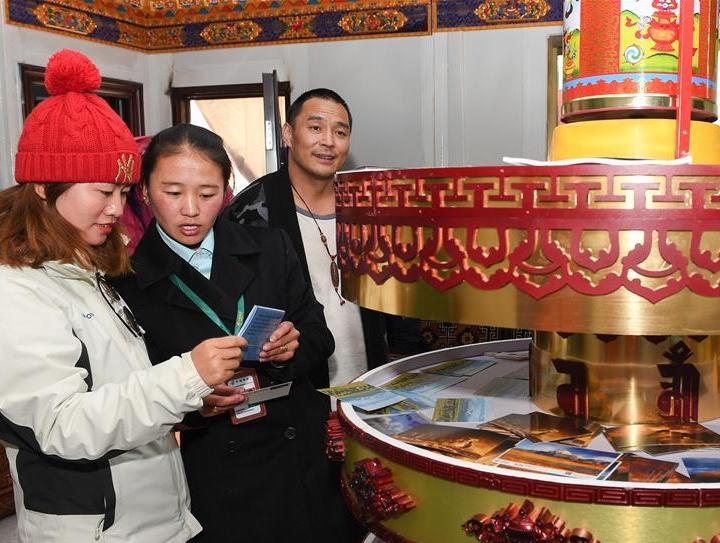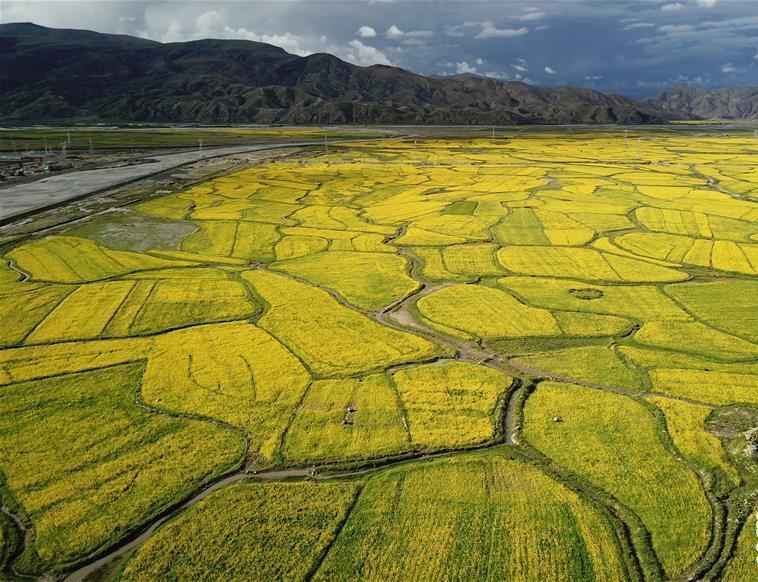China to lift 30 million more people out of poverty
China will lift an additional 30 million people out of poverty in the next three years as part of its efforts to eradicate poverty by 2020, a latest guideline read.
Experts said a harsh natural environment and lack of awareness among rural people to "help themselves" are the biggest challenges.
China released a guideline on Sunday on winning the battle against poverty. It is an arduous task to lift an additional 30 million people out of poverty in the next three years, said the guideline released by the Communist Party of China Central Committee and the State Council, China's cabinet.
The guideline reiterated the country's target of lifting all rural poor and impoverished counties out of poverty and eliminating absolute poverty by 2020 to build a moderately prosperous society, the Xinhua News Agency reported on Sunday.
Poor people should be guaranteed food and clothing, and children from poor families should be guaranteed the nine-year compulsory education. And their basic medical needs and living conditions should also be guaranteed, the guideline said.
The guideline explained that poverty relief work should be focused on areas where abject poverty exists, such as Southwest China's Tibet Autonomous Region, Liangshan Yi Autonomous Prefecture in Southwest China's Sichuan Province and Nujiang Lisu Autonomous Prefecture in Southwest China's Yunnan Province.
The guideline highlighted fostering distinctive industries, supporting employment, advancing relocation, ecological restoration and strengthening education. It also listed other poverty alleviation measures, including accelerating infrastructure development in poor regions, increasing fiscal and financial support, social mobilization, and strengthening and improving Party leadership in poverty reduction.
Yu Shaoxiang, an expert on social security and poverty relief legislation at the Chinese Academy of Social Sciences, told the Global Times on Monday that "it will be difficult to accomplish the task as the 30 million people live in a poor natural environment and insufficient infrastructure."
Unlike social maintenance measures, the task of poverty alleviation not only aims to provide them with subsidies but also to teach them to help themselves, Yu said.
He noted that the biggest challenge is not about how much money the central government will provide, but how to improve their awareness.
"Many villagers believe they are entitled to government help. They would squander the money given to them," Yu said.
More than 68 million people have been lifted out of poverty, including 8.3 million who were relocated from inhospitable areas, with the poverty ratio dropping from 10.2 to 3.1 percent, according to this year's Government Work Report.
To make full use of the "Internet Plus" to attract greater involvement in helping the poor, the State Council set up an online platform in July 2017 named Social Participation in Poverty Alleviation and Development.
Online services have gradually played a bigger role in reducing poverty by promoting agricultural goods produced by poor people and by bringing high-quality education closer to more children in remote mountainous regions through the internet.
"In the past two years, e-businesses in Northwest China'sXinjiangAutonomous Region have rapidly developed and many local residents have benefited from poverty relief measures with the help of internet," Huang Changhui, director of the Yuli county e-business association told the Global Times on Monday. Yuli county is 520 kilometers to the regional capital Urumqi.
Your Comment
Name E-mailRelated News
-
-
China's economy manageable despite pressures: experts
Recent external pressures, a general global trade malaise and bold new domestic reforms are putting some extraordinary pressures on China's economy, but economists say positive indicators far outweigh the negative ones and predictions of doom and gloom will soon be prove wrong.
-
-
College denies Islamic culture course taught by Pakistani student spread religious beliefs
A Chinese university denied that an Islamic culture course taught by a Pakistani student had spread religious beliefs to students, amid online criticism that the university failed to separate education from religion.
-
-
China-Europe cooperation on aviation shifts into higher gear
The fast-growing market demand of civil aircraft and rapid development of aviation industry offer unprecedented opportunities for cooperation between China and Europe which has seen remarkable progress in recent years.
-
-

-
Tibet rises from poverty: fantasy and reality
As a result of Hollywood and a fascination with Buddhism among certain celebrities and in some bohemian circles, many Americans are deeply misinformed about Tibet.
-
-
-
China's poverty relief benefits neighboring countries
China's poverty-relief campaign has brought benefits at home and abroad.







